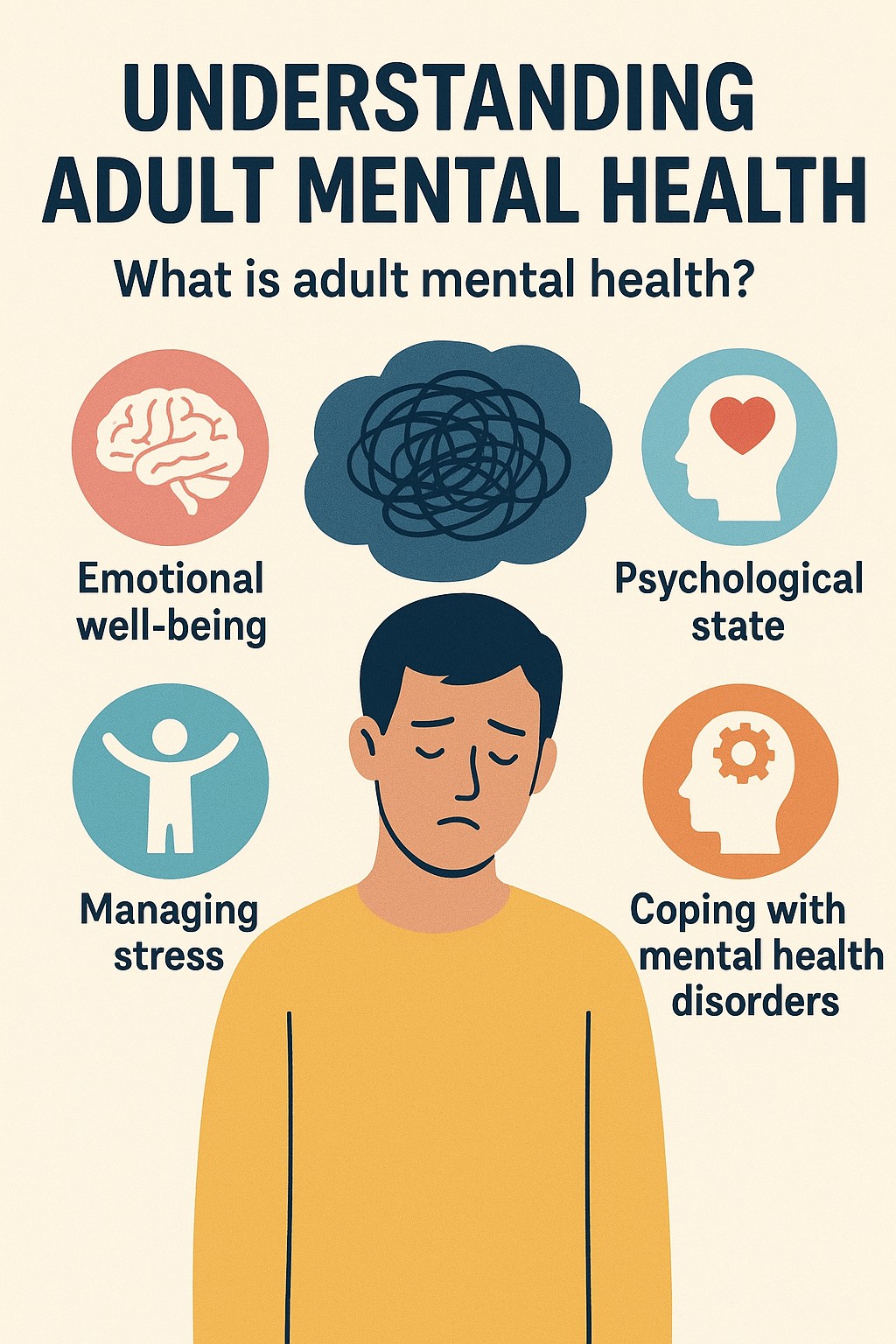Understanding Adult Mental Health
Adult mental health encompasses our emotional, psychological, and social well-being. It affects how we think, feel, and act. It also helps determine how we handle stress, relate to others, and make choices. Good mental health is not just the absence of a mental illness; it's a state of well-being where an individual realizes their own abilities, can cope with the normal stresses of life, can work productively, and is able to make a contribution to their community.

Common Mental Health Conditions
Mental health conditions are common and treatable. Below are a few examples; click on each to learn more.
Anxiety Disorders
Characterized by persistent and excessive worry, fear, or panic in non-threatening situations.
Depression
A mood disorder causing a persistent feeling of sadness and loss of interest in activities once enjoyed.
Bipolar Disorder
Associated with extreme mood swings that include emotional highs (mania or hypomania) and lows (depression).
Post-Traumatic Stress Disorder (PTSD)
A condition that may develop after experiencing or witnessing a terrifying event.
Obsessive-Compulsive Disorder (OCD)
Features a pattern of unwanted thoughts and fears (obsessions) that lead you to do repetitive behaviors (compulsions).
Schizophrenia
A serious disorder which affects how a person thinks, feels and behaves, often interpreting reality abnormally.
Impact on Daily Life
Mental health challenges can ripple through every aspect of a person's life.
Work & Productivity
Difficulty concentrating, decreased motivation, and managing work-related stress can impact performance and career progression.
Relationships
Challenges in communication, social withdrawal, and irritability can strain relationships with family, friends, and partners.
Personal Well-being
Can disrupt sleep patterns, appetite, and energy levels, making it difficult to maintain physical health and engage in self-care.
Key Statistics
Understanding the scale of mental health is the first step towards addressing it.
Prevalence in U.S. Adults
Data from the National Institute of Mental Health (NIMH) shows that nearly one in five U.S. adults live with a mental illness.
The Treatment Gap
A significant number of adults with mental illness do not receive the mental health services they need each year.
Pathways to Wellness
A variety of resources and treatments are available. The right path is personal and may involve a combination of approaches.
Building a Supportive Society
Everyone has a role to play in fostering a mentally healthy community.
To create a world where mental health is prioritized, we need collective action. This involves challenging stigma, advocating for better policies, and offering compassion in our daily interactions. By improving access to care, fostering open conversations, and creating supportive environments in our workplaces and communities, we can build a society where everyone has the opportunity to thrive.